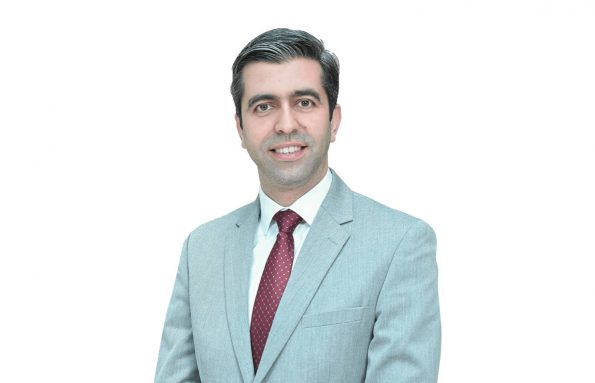According to the International Diabetes Federation Diabetes Atlas, in 2021, around 990,000 adults in the UAE aged 20-79 years old, were reported to suffer from diabetes, and it is projected that by 2030, there will be approximately 1,177,500 diagnosed cases.
What Causes Diabetes?
Diabetes is a chronic disease that occurs when the pancreas doesn’t produce enough insulin for the body, or when the body cannot effectively use the insulin it produces. Insulin is a hormone that moves glucose from your body into cells, providing them with energy to function. Without insulin, glucose stays in your bloodstream, left unused.
Types of Diabetes
Type 1 diabetes is an autoimmune condition where the pancreas struggles to produce insulin on its own. The immune system attack and destroys the cells in the pancreas that are responsible for producing insulin, and as a result of this, patients are required to synthetically inject, pump, or inhale insulin. The amount of insulin needed throughout the day fluctuates, and is dependent upon your age, weight, physical activity level, diet, and your glucose level at any given time. Research on type 1 diabetes is still on-going as researchers are still yet to understand the underlying reasons as to why the immune system attacks the body’s cells, however there have been correlations associated with this, such genetic and environmental factors that make the body more susceptible in attacking its own cells. Symptoms for type 1 diabetes can manifest itself as early starting from the age of 7. Symptoms can appear sporadically and may include: blurry vision, constant fatigue, feeling irritable and experiencing mood changes, weight loss, feeling parched, and urinating a lot. Till today, there is no known way to prevent type 1 diabetes, therefore it is important to be aware of the common symptoms listed and to consult your endocrinologist if you are experiencing such symptoms.
Type 2 diabetes on the other hand is not an autoimmune condition, as the pancreas is able to produce insulin but at low amounts, and/or isn’t using the insulin properly. There are several factors that can contribute to insulin resistance, including excess body fat, chronic stress, consuming highly processed foods and saturated fats, as well as genetics. Such factors are modifiable and can reduce the susceptibility of being diagnosed with type 2 diabetes. Unlike type 1 diabetes, symptoms for type 2 diabetes develop slowly over time, these include tingling or numbness in your hands or feet, slow healing of cuts and sores, if you have polycystic ovarian syndrome (PCOS), have high blood pressure and/or high cholesterol, and are over the age of 45. Type 2 diabetes can be treated with or without taking insulin or other medications to stabilise or lower blood sugar levels. There are no permanent cures for both type 1 and type 2 diabetes, but type 2 diabetes can be prevented and managed through lifestyle and behaviour changes.
- About us
- Patients & Visitors
- Our Doctors
- Departments & Divisions
- Department of Paediatrics
- Department of Surgery
- Department of Medicine
- Department of Pathology and Laboratory
- Department of Critical Care
- Department of Emergency Medicine
- Department of Clinical Imaging
- Department of Obstetrics and Gynaecology
- Department of Anaesthesiology
- Department of Physical Medicine and Rehabilitation
- Clinics
- Department of Clinical Nutrition
- Department of Nursing
- Department of Radiation Therapy
- Education
- Introduction to Education
- Clinical Observership Programme
- Non-Clinical Internship Programme
- Graduate Medical Education Centre
- CME Centre
- Centre of Innovation and Medical Simulation
- Nursing Education Centre
- Medical Student Education Centre
- Health Sciences Education Centre
- Staff Development Centre
- SSMC Training Academy
- Research
Book Appointment
- Request an Appointment
800 7762
- About us
- Patients & Visitors
- Our Doctors
- Departments & Divisions
- Department of Paediatrics
- Department of Surgery
- Department of Medicine
- Department of Pathology and Laboratory
- Department of Critical Care
- Department of Emergency Medicine
- Department of Clinical Imaging
- Department of Obstetrics and Gynaecology
- Department of Anaesthesiology
- Department of Physical Medicine and Rehabilitation
- Clinics
- Department of Clinical Nutrition
- Department of Nursing
- Department of Radiation Therapy
- Education
- Introduction to Education
- Clinical Observership Programme
- Non-Clinical Internship Programme
- Graduate Medical Education Centre
- CME Centre
- Centre of Innovation and Medical Simulation
- Nursing Education Centre
- Medical Student Education Centre
- Health Sciences Education Centre
- Staff Development Centre
- SSMC Training Academy
- Research
Book Appointment
- Request an Appointment
800 7762






